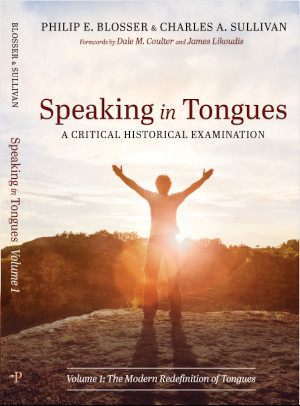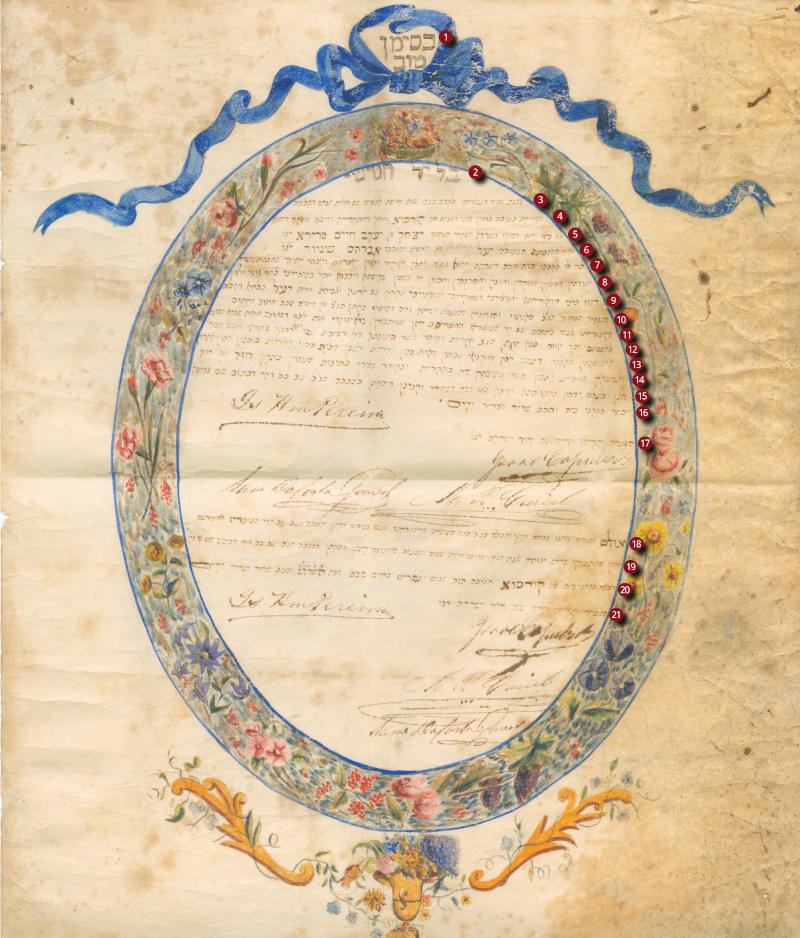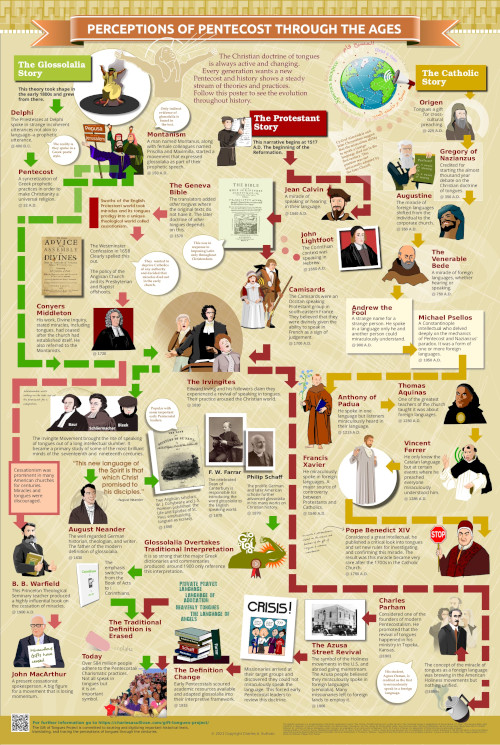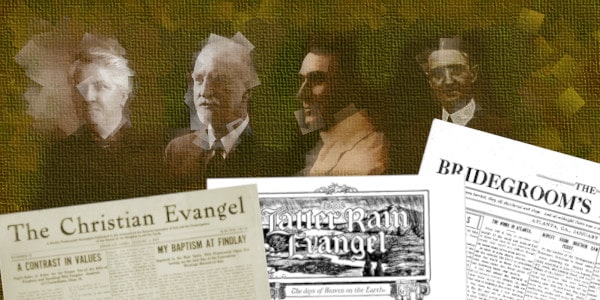Speaking in Tongues: A Critical Historical Examination, Volume 1, is now available at Amazon.
A Canadian Made Solution for Abortion

A better choice in the pro-life/pro-abortion mudslinging: both parties working together. A point of view from a now moderated pro-lifer.
Any pro-life victory has to go hand-in-hand with better protection of women and motherhood. One cannot promote the unborn at the expense of the mother. Nor the mother at the cost of the unborn.
There is a common ground between the polarized parties that address the unborn and the mother. But to arrive at that, challenging discussions and structural social changes are necessary to make this happen.
A Traditional Jewish Marriage Contract
Miracles, Suffering, and a Magic Wand

Perspectives of miracles and suffering from a seasoned Charismatic Christian.
If I had a magic wand like the historical characters in the Bible had with prayer, then my little brother’s cancer would be gone.
The wand for my late friend, Mark Typa, whose cancer ravished his body and stole him away. A wish to have walked in his room earlier and confidently stated that he is healed, just like Jesus did with St. Peter’s mother-in-law. Then later to play billiards and have him annihilate me in yet another game.
Hildegard of Bingen and Her New Language
The myth or reality of Hildegard of Bingen speaking in tongues.
Hildegard of Bingen was a remarkable twelfth-century German abbess–a rock star in her time. She even invented a primitive language for her convent. Was it glossolalia, speaking in tongues, singing in tongues, or jubilation?
She is a figure whom some academic Pentecostal whisper support. They allude that Hildegard was part of a tradition passed to them.
An examination reveals that her speaking or singing in tongues or similar rites is a myth. It has nothing to do with ecstasy and everything about her intellectual creativity. She did invent a primitive language, but it was not glossolalia.
Of course, readers of the Gift of Tongues Project won’t accept such a brief explanation. A more detailed description follows.
Table of Contents
The Book of Genesis and Matthew 1:1
The mystery and possible solutions to the first two words of the Book of Matthew.
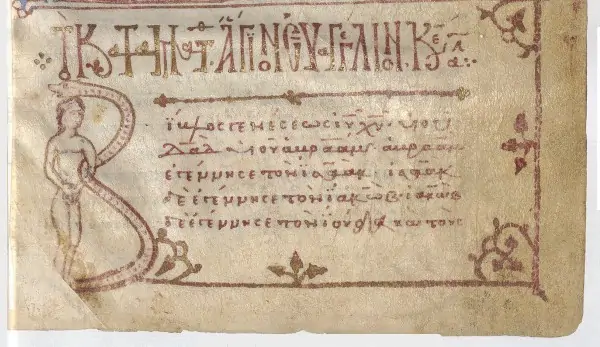
The start of the Book of Matthew seems reasonable, but a closer look reveals some tension. In the English translation, it begins with, “A record of the genealogy. . .” which appears straightforward. The Greek is ambiguous. It has Βίβλος γενέσεως, which is very close to the words the Book of Genesis.
Garrick V. Allen, A New Testament Scholar at the University of Glasgow, recently brought up this discussion via Twitter (@Garrick_V_Allen, November 21, 2021). Did Matthew intend to start his book as the new age of Genesis with Christ being the new incarnation for humanity? Or is it just accidental?
Perceptions of Pentecost Through the Ages
An infographic that outlines the history of Pentecost from inception until today.
The graphic contains the significant four streams of thought throughout the centuries: The Catholic, Traditional Protestant, Conservative Protestant, and the Glossolalia Stories.
There is a dominant assumption that speaking in tongues died out in the early church and then reappeared with the Pentecostal awakening in the late 1800s/early 1900s. Not true. Almost every generation has wanted to claim Pentecost for themselves throughout history.
See the following paths of tongues through the centuries for details.
History, Faith, Politics, and COVID
COVID from historical, literary, political, ecclesiastical, and Bible perspectives. An eclectic mix from a Canadian viewpoint that produces surprising results.
History has a lesson of repeating itself and COVID is no different. Each plague unearths a new set of social problems that need address. There comes a point where history cannot give all the answers. Contemporary society is forced to make difficult but necessary changes within their particular context while avoiding the dangerous pitfalls on the way.
The goal here is to briefly touch on the history of pandemics through historical literature including the Bible, explore theological questions, and arrive at some political realities.
Utterance Versus Gift of Tongues
An analysis of early Pentecostal theology and their distinction between utterance and the gift of tongues.
This article is an addendum to Solutions to the Pentecostal Crisis. An exploration about why early Pentecostals changed the definition of tongues. One from miraculously speaking a foreign language to an alternative version.
Jansenism and Christian Tongues
A detailed look at the Jansenist connection to the Christian doctrine of tongues.
Any reader who has familiarity with the Christian doctrine of tongues will eventually come to the topic of this 18th-century French movement. They are only a small notation in the debate, but like all others, needs a critical look. Many historical claims of groups or persons speaking glossolalia, tongues, xenolalia, or similar are typically under-investigated.
Previous research and articles categorized under the Gift of Tongues Project has revealed many inaccuracies and dispelled large generalizations on many movements. The Jansenists also fit within the framework of unsubstantiated claims.
This article aims to uncover the source(s) regarding the Jansenists with an analysis of various third-party commentaries on the subject.
